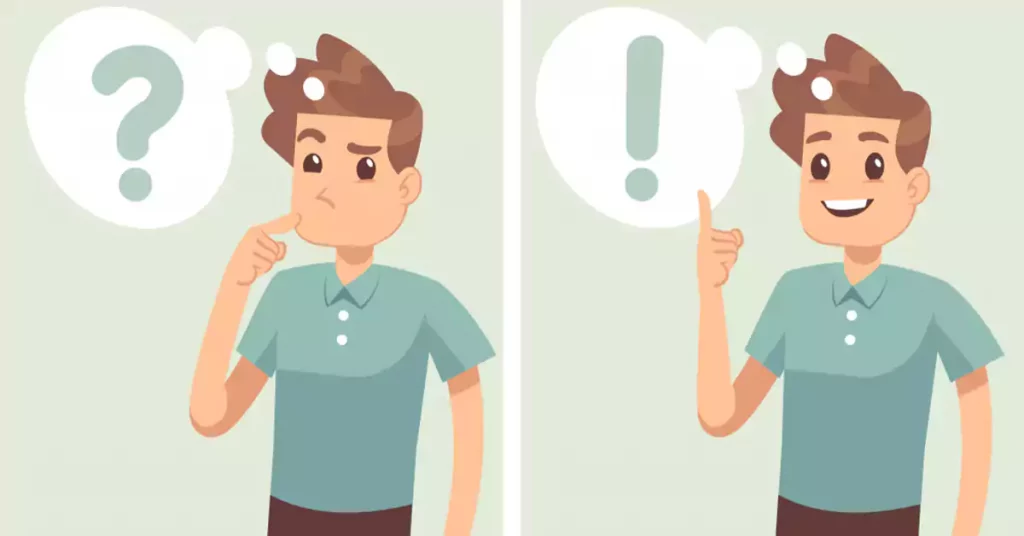With a constantly declining economy, there are about 10 reasons spending habits could leave you broke that I know about, and, I’ll like to discuss them.
Stay with me!
We are, as the adage goes, what we repeatedly do. When it comes to spending the money you earn, your habits might determine whether you achieve your financial goals or live paycheck to paycheck.
We understand that breaking a habit is not always straightforward. That is why we want to assist you in identifying unhealthy habits and replacing them with new ones to help you save money.
Consider a future where you can take that perfect vacation, pay for your children’s college, and donate generously to those in your community. Isn’t it a lovely utopian dream?
The real kicker is that it does not have to be a dream for much longer. Simply altering a couple of your spending habits can set you on the path to making those what-ifs a reality.
Old habits, terrible financial ones, are difficult to break if you don’t have any savings and spend more than you earn; it is time to break your destructive spending patterns and start practicing healthy financial practices.
Of course, breaking negative habits and forming new ones is a process that takes time. However, you may begin to develop better financial culture.
So here’s a breakdown of our content table.
Why Do Poor Financial Habits Set You Up For Failure?

Poor financial habits might keep you from achieving your financial objectives and set you up for failure.
For example, not planning your spending culture, having terrible spending habits, and failing to save money might expose you to unexpected costs and leave you living paycheck to paycheck, with no money set up for retirement.
As you can see, unhealthy financial habits can have disastrous consequences for your financial future.
Every financial decision you make daily will impact whether you are successful in paying off debt or accumulating wealth. Here are ten spending habits that could leave you trapped as you build your financial foundation.
1. Shopping for Status
It is easy to entrap yourself into the web of trying to acquire what others have. But unfortunately, buying what you “should” buy prevents you from considering your priorities.
Simply attempting to “fit in” with your neighbors can quickly lead to debt and a bleak financial future. Instead of striving to keep up with the Joneses, figure out what matters most to you and quit spending on things that do not.
Do you purchase items to impress others? Unfortunately, it is easy to get roped in celebrity fashion and the desire to impress others with your assets.
On the other hand, shopping for prestige is not an excellent method to make real friends and leads to financial ruin. Remember, you should always be yourself, and you do not have to impress people with your possessions.
2. Impulse Purchases
It’s not by chance that all those delicious treats are nicely presented in the checkout queue. Instead, retailers use this sales technique to persuade you to spend more money before leaving the store.
Impulse purchases add up rapidly and might soon deplete your bank account. Let us assume you spend $100 every month on impulse purchases; that’s $1200 per year! To kick this harmful habit for good, learn how to stop buying.
You are probably aware that impulse purchases are terrible for your bank account. Yet, every year, Americans spend almost $2,100 on impulse purchases! Food, clothing, and even automobiles are frequently purchased on impulse.
So before you grab that final roll, think about whether you genuinely need it—or if you’ll be fine with the stash you already have at home!
3. Spending Without A Well-Thought-Out Direction
Budgeting is essential, or your money will disappear, and you won’t know where it went. Too many people live on less money than they earn and rely on credit cards to make ends meet.
If there’s a strategy in place, you will be ahead of the game if you can live on less than you earn and put money aside for emergencies.
4. Spending Money, You Don’t Have
Spending more money than you earn is possible since you can spend money you do not have or money you haven’t made yet. For example, you spend money you don’t have using credit cards, taking out loans, payday loans, cash advances, and overdrawing your account.
If you employ these ways to pay bills and make purchases, you’re in debt. Your debt will continue to grow if you do not pay it off in full each month; it will keep growing.
Reduce your costs and rely solely on your money to break this harmful habit to meet your needs.
5. Using Debt To Pay Off Debt
You’re not paying off anything when you use credit cards to pay off other credit cards and loans to offset other loans. Instead, you’re simply shifting your debt around, accumulating more debt each time.
Transaction costs apply to balance transfers, and most loans need a downpayment or origination charge. As a result, when you use debt to pay off debt, you wind up in a worse situation than when you started.
Transferring a said balance from a high-interest credit card to a credit card with a lower limit could be beneficial for paying off debt. However, be sure the balance transfer charge does not cancel out the interest savings and that your post-promotional interest rate isn’t higher than your current rate.
Shifting a balance once or twice to take advantage of a low rate is not the same as transferring balances regularly to avoid credit card payments.
6. Spending More Money Than You Make
When your monthly wage is barely $1,500, the rational half of you thinks it is impossible to spend $2,000 every month.
However, it’s easier than you think to spend more than you earn. You can spend more money than you gain by dipping into savings, borrowing from others, or using credit.
Your hole-digging spending habits will eventually catch up with you. Soon, your funds will be depleted, you’ll max your credit cards, and you will be out of options for borrowing money.
Maintain a spending pattern consistent with your monthly income so that you don’t go into debt. Reduce your expenditure to less than your income level, and use the extra funds to pay off debt.
7. Consistently Making Late Payments
Your financial future may be jeopardized due to your late bill payments. First and foremost, you are subject to late fees, which could cost you money right now. On the other hand, late payments can worsen credit scores.
You will pay more in interest on your other loans if your credit score is poor, and you may not be able to qualify for home loans or other loans if your credit score is low.
8. Putting Others First
We are encouraged not to be selfish, yet there are moments when you need to prioritize yourself. For example, if you prioritize your child’s college fund over your retirement or agree to cosign on someone else’s loan, you may jeopardize your finances.
Before spending your money on someone else, be sure your finances are in order. Furthermore, if you are financially stable, you will be able to aid others more effectively in the long run.
9. Putting Off Insurance Coverage
You may be shocked to learn how beneficial insurance may be. If a natural disaster destroys your home or you are hospitalized due to a medical mishap, the financial consequences might be severe.
If you don’t have enough insurance, you can end yourself in debt or have to take money out of your retirement account. Review your policy regularly to ensure that your valuables are adequately covered.
10. Habitually Making Late Payments
Your financial future may be jeopardized due to your late bill payments. First and foremost, you are subject to late fees, which could cost you money right now. On the other hand, late payments can worsen credit scores.
You will pay more in interest on your other loans if your credit score is poor, and you may not be able to qualify for home loans or other loans if your credit score is low.
How To Break Bad Spending Habits

Healthy spending habits can assist you in saving for your goals and avoiding debt accumulation. Here are some suggestions for breaking poor practices that could jeopardize your financial security.
1. Spending Blunders
We have all got a few. Fortunately, if you work a little bit and are persistent, you can replace those destructive behaviors with healthier, money-saving ones. Below are some tips that may help:
2. Recognize And Embrace The Spending Habits That Are Bringing You Difficulties
Start by asking yourself the following questions: Do you keep a record of your spending? Do you routinely make purchases using your credit card?
How often do you find yourself paying too much for gimmicks you see on social media or at the checkout line?
When you are stressed or upset, how often do you seek “retail therapy”? Then, if you’re being completely honest with yourself, here’s what you should say: When you recognize your bad spending habits, you may face them head-on.
3. Track Your Spending
Making a monthly budget is a good idea if you haven’t done so already. A budget is a well-organized, single document that allows you to keep track of your spending. Each time you buy, make a note of what you purchased and how much you spent.
If you analyze your monthly expenditures, breaking them down into numerous categories, such as entertainment, restaurant meals, fashion, and technology, may help you find areas where you overpay.
Seeing where you expend the most money can help you save money in the future or make you re-evaluate your spending habits and unnecessary purchases.
4. Set Specific Savings Goals
When you are in a situation where overspending is a possibility, having short- and long-term financial goals might help you maintain self-control. Do you have money set aside for a new car?
To keep putting money aside to reach your goal, you will undoubtedly have to re-evaluate some of your regular expenses.
Your goals should be personal, so think about what you want your money to do for you. It is important to remember that the more descriptive you are, the better.
A short-term goal could be something like, “This month, I’m intending to spend half as much at restaurants as I did last month.”
Tracking your progress during the month is easier if you have a specific goal rather than a vague one like “I plan on saving money this month.”
5. Be Aware Of How Much You Are Buying On Credit
You can quickly find yourself in a bind with a “buy now, pay later” mentality. Seeing as you can only spend what you have on hand, you should be careful about using a debit card or cash; however, making a habit of always using a credit card can make you appear to have more money than you do.
This, of course, relates to your budget. As opposed to buying things on a whim, look at your budget to see how much you can afford while still saving, and know that as soon as you have spent that amount, whether using cash, credit, or debit, you are done for the month.
6. Shop From A List
Before shopping for groceries, clothing, or anything else, make a list of your required items. This might help you distinguish between necessary purchases and those simply desired. Put it on your list if you are in severe need of something.
If you see anything in the store that just appeals to you at the time, you might want to pass it up this time.
While you’re at it, consider using a basket instead of a shopping cart.
Even after you’ve completed your to-do list, the extra space may urge you to add to it.
7. Be Diligent About Fees And Subscriptions
When you are in a situation where overspending is a possibility, having short- and long-term financial goals might help you maintain self-control.
Do you have money set aside for a new car? To keep putting money aside to reach your goal, you’ll undoubtedly have to re-evaluate some of your regular expenses.
Your goals should be personal, so think about what you want your money to do for you. It’s important to remember that the more descriptive you are, the better.
For example, a short-term goal could be, “This month, I intend to spend half as much at restaurants as I did last month.”
It’s easier to monitor your progress if you have a specific goal rather than a vague one like “I’m going to save money this month.”
8. Cut Your Car/Transportation Expenses
Your car can be one beautiful expense carrier. One moment, you’re cruising down the road with the air conditioning unit ensuring you get the best, and the next moment, you’re at the mechanic shop.
As beautiful as the car experience is, you have to be careful not to buy used cars by yourself. It could end up turning into a money zapping tool.
To lay more emphasis on this, you can agree with me that mechanics charge a whole lot for repairs, and if that car is going to be breaking down every now and then, it’s going to be counterproductive.
As a car owner, sometimes I get pissed when I go to the mechanic shop and have to spend hundreds of dollars to do some legwork on my vehicle.
I do admit that sometimes these mechanics charge high on purpose, and sometimes, they help you damage other things so you’ll have to fix them. But that’s completely out of context for now. I believe that owning a car sets you up for all kinds of crazy expenses.
My advice is to take the bus whenever you can. It’s cheaper, and for those living in countries that have dedicated bus lanes, the buses are always faster, and you get to save so much.
9. Choose Your Accommodation Wisely
If you don’t own your own house, you’ll agree with me that the cost of accommodation is just crazy expensive. you can use up more than 50% of your paycheck just to cover accommodation issues.
You have got to understand that staying in a smaller apartment doesn’t make you poor or anything, rather, it makes you spend less on accommodation.
If you don’t need the extra space, it’s best you take a smaller apartment and save more on your paycheck. Trust me there are several other expenses just waiting to dive at you once you receive that cheque.
Your Future Is in Your Hands

Whatever course you choose, admitting to any current financial poor habits indicates you are already making improvements.
Because there is no ultimate solution to financial mismanagement, discovering how to optimize your financial status will require some creativity and critical thinking.
Two solid places to start are keeping track of your spending and monitoring your credit. Consider obtaining the guidance of a qualified credit counselor if you require additional assistance.
Credit counselors work for non-profit organizations and offer free or low-cost services to help people improve their financial literacy and solve their financial problems.
With the knowledge above in hand, you should think more effectively about your finances. Hopefully, this signifies that your financial goals are within reach.
To your finances. Good Luck!
You learn about 14 bad money habits that can leave you broke through this well-researched post.
Also, learn about 10 reasons why low-income earners never reach the top. It reveals a lot.

